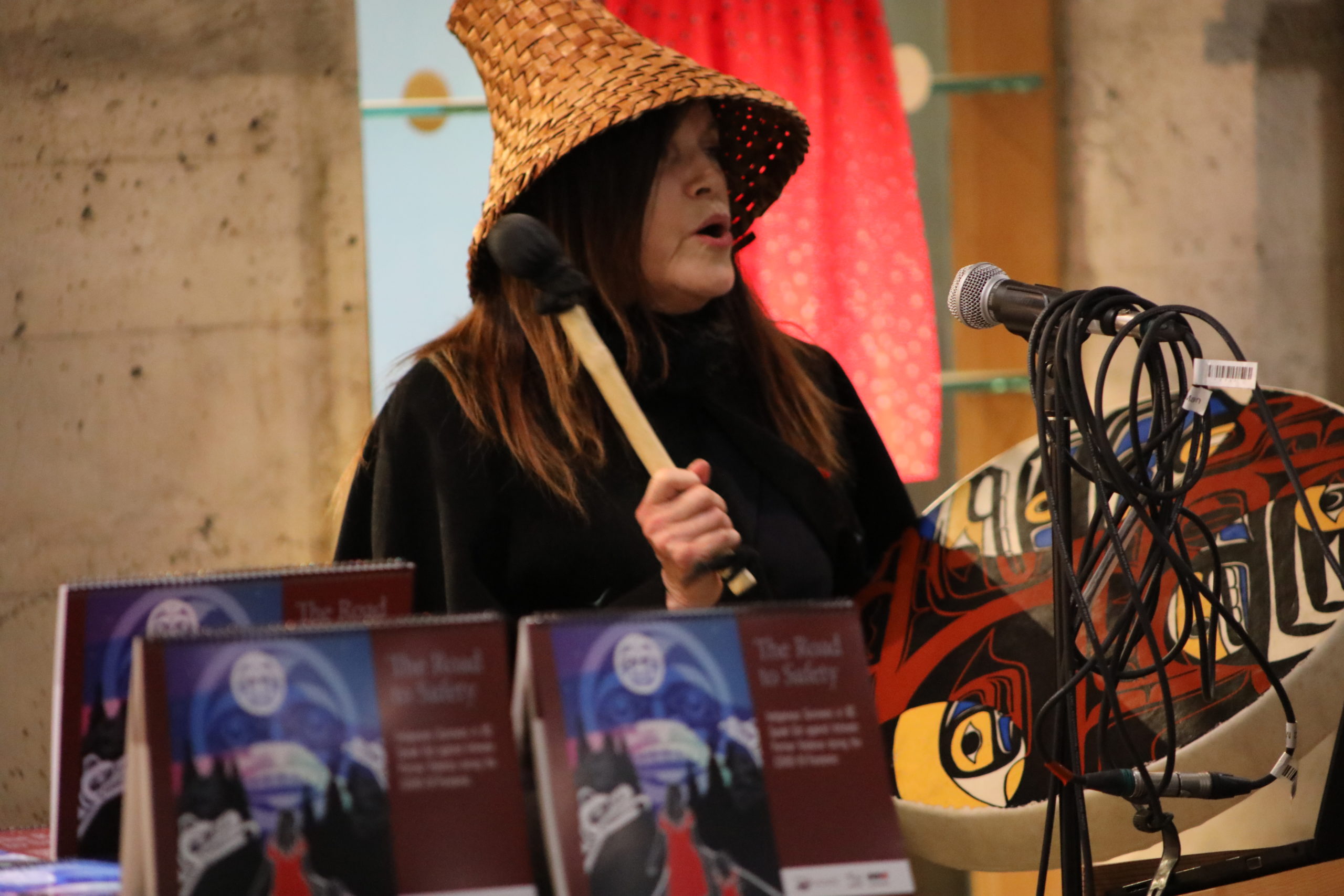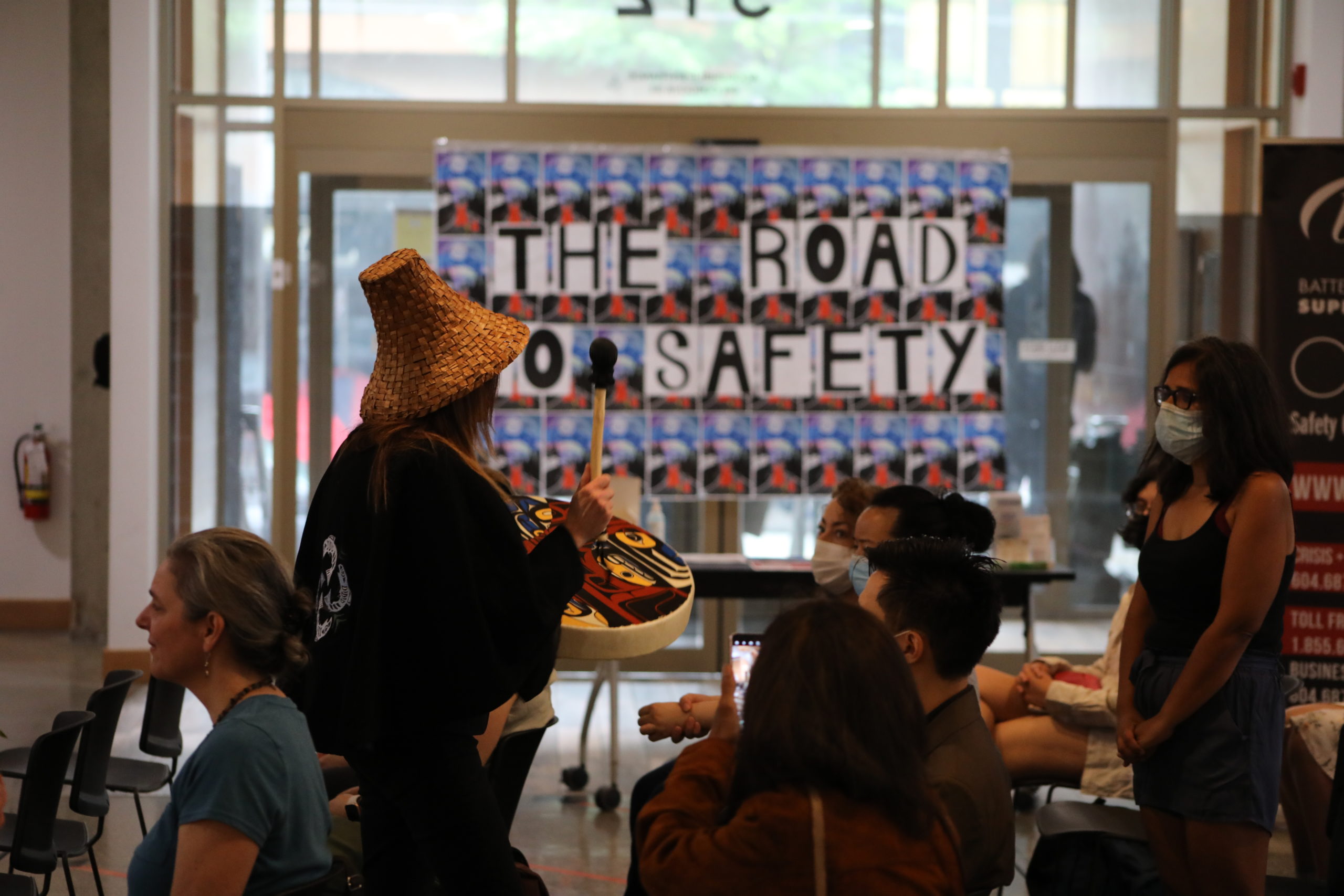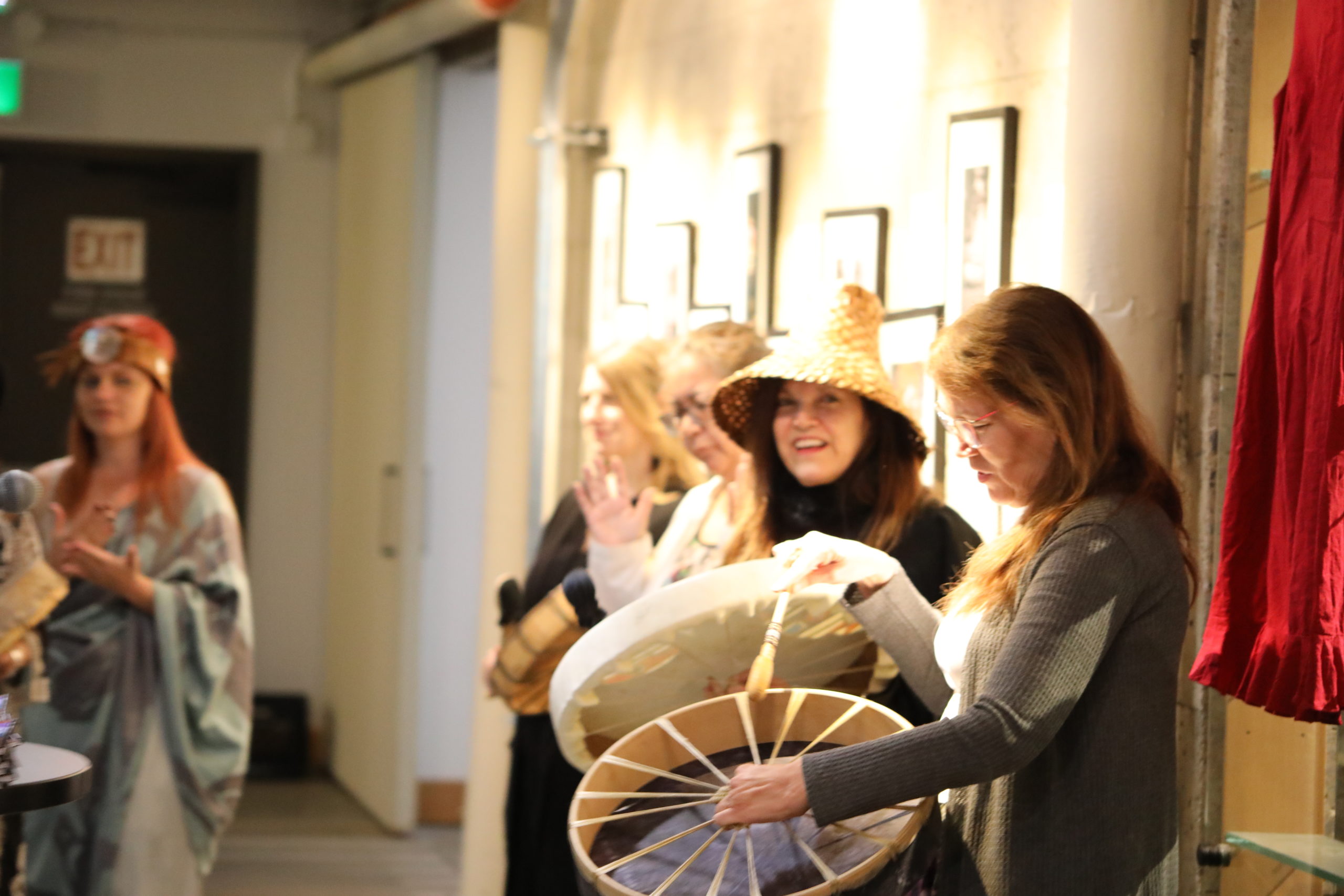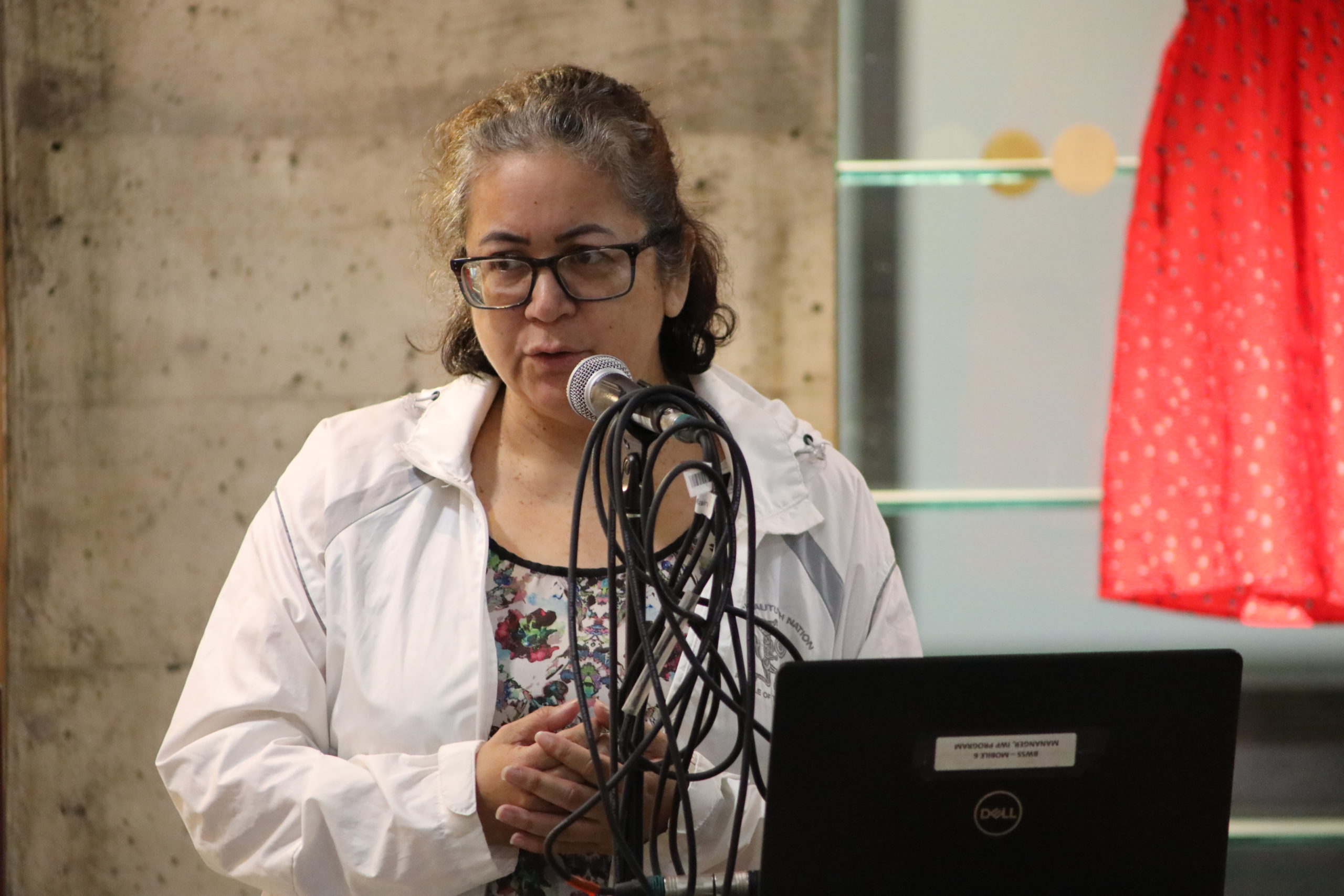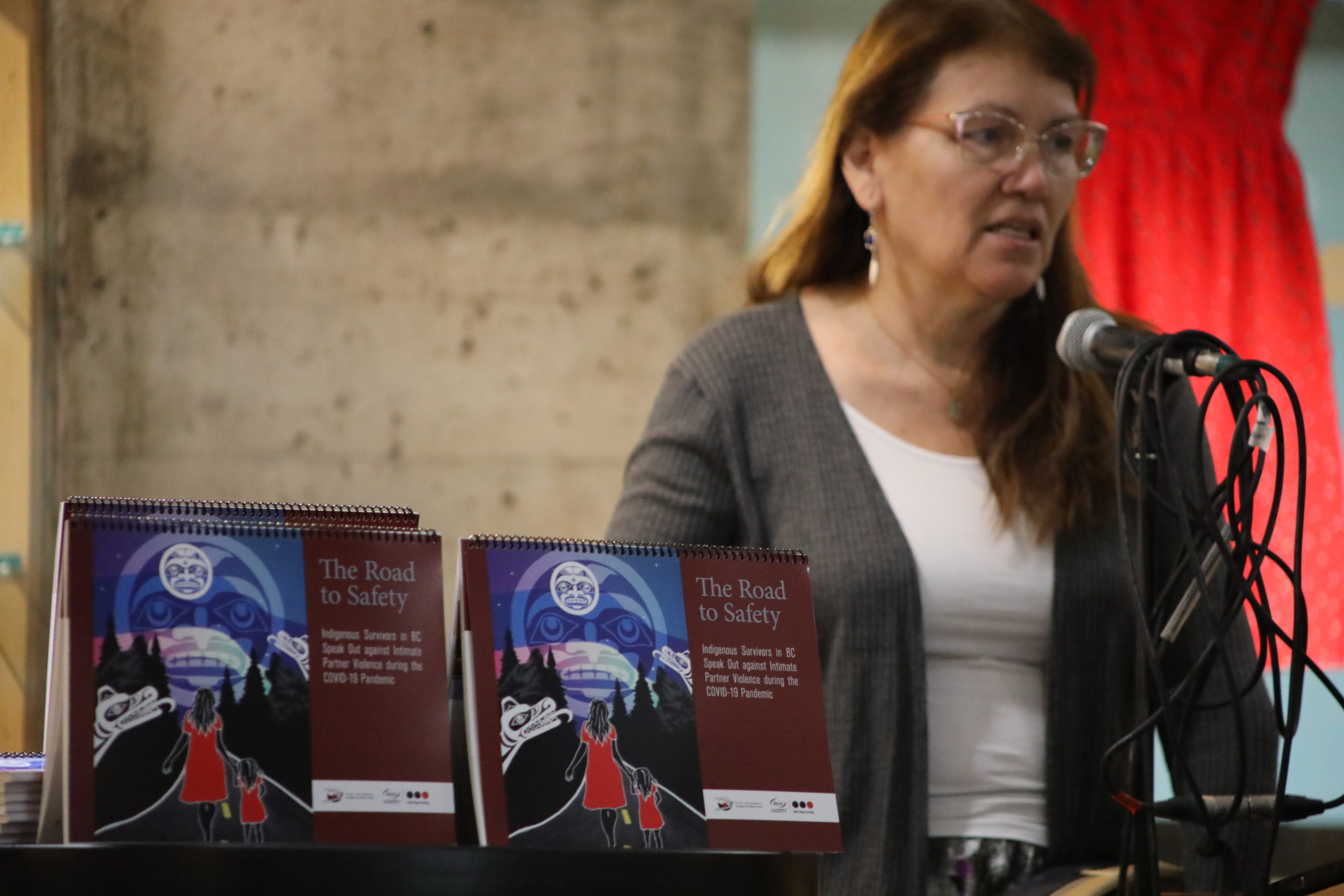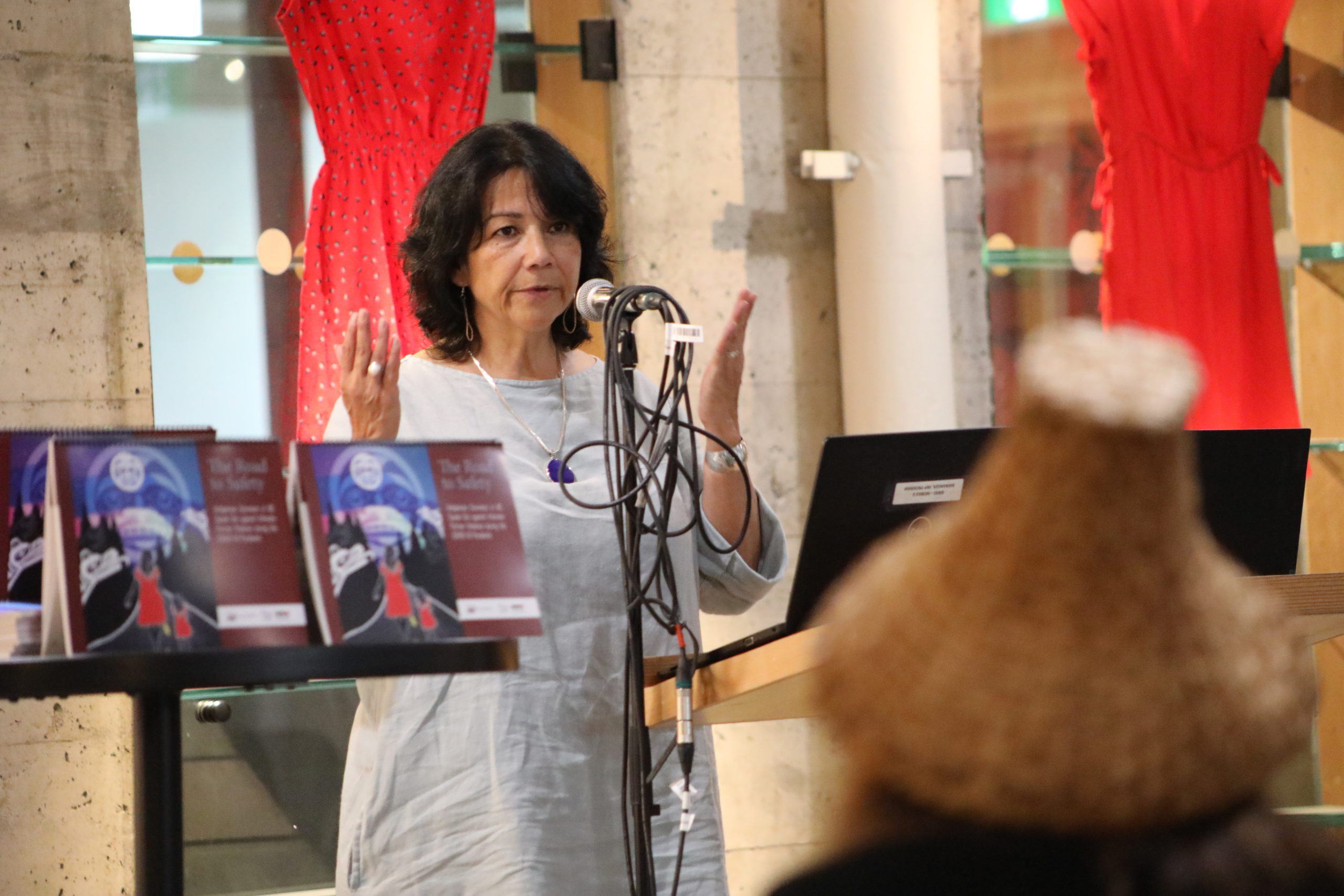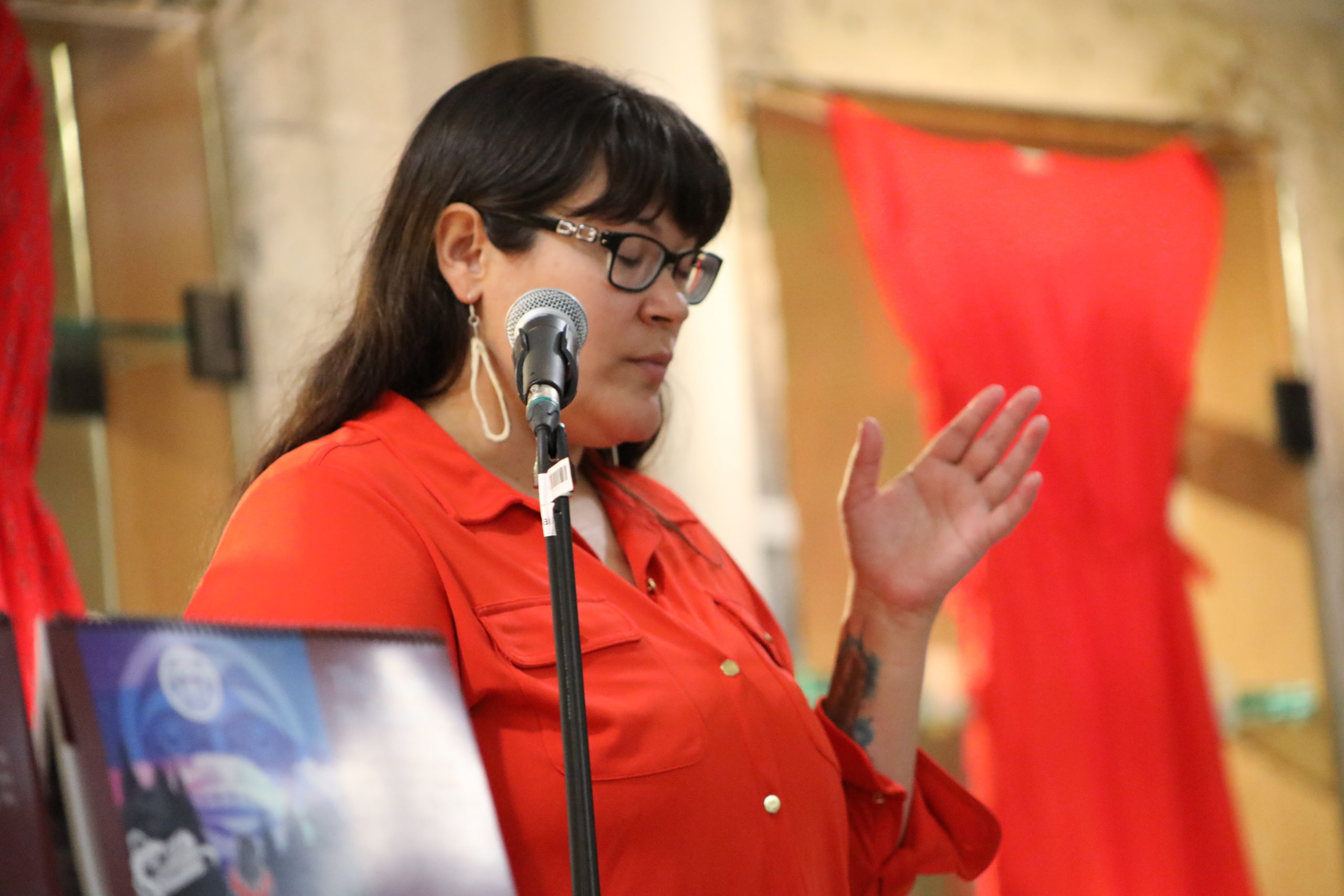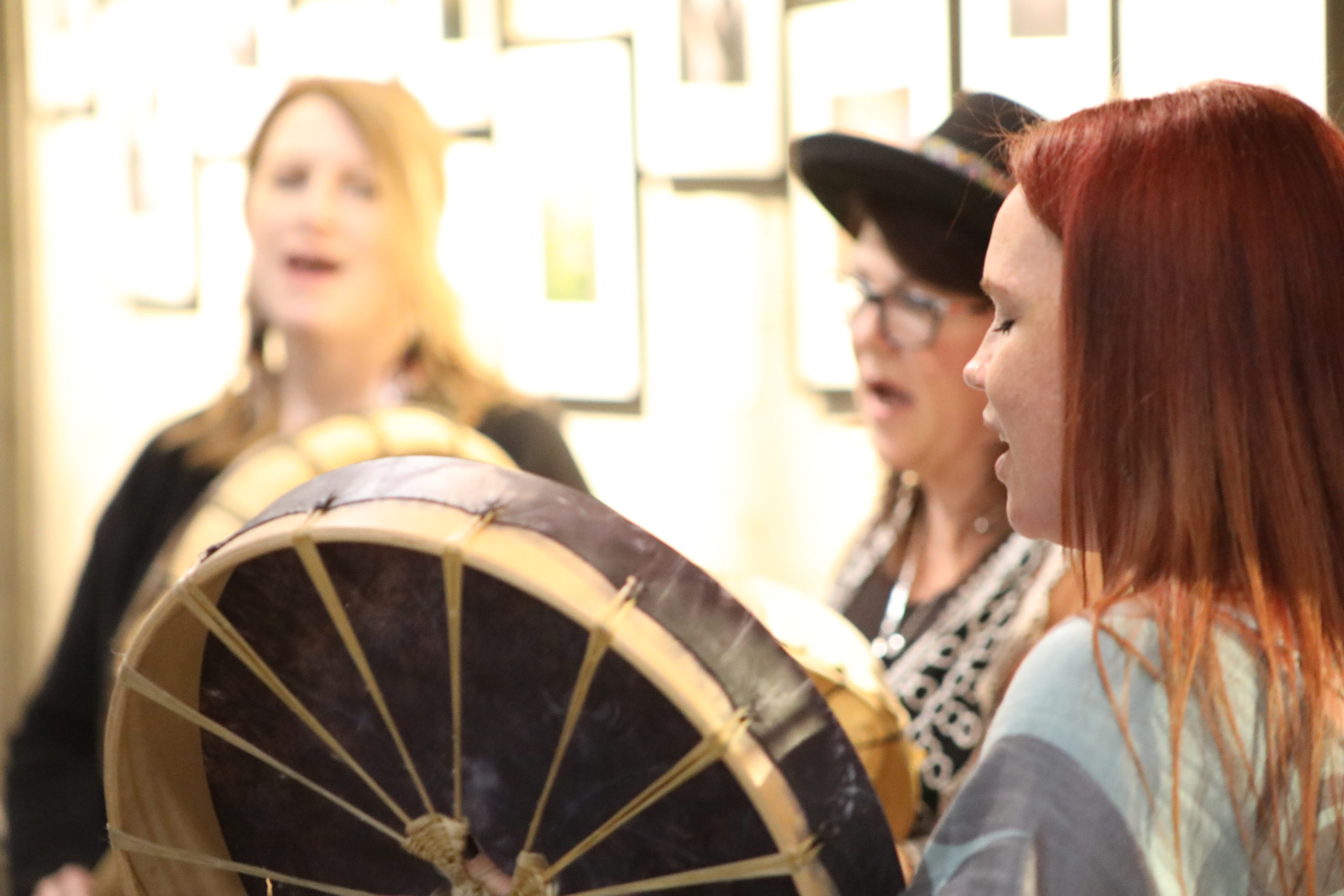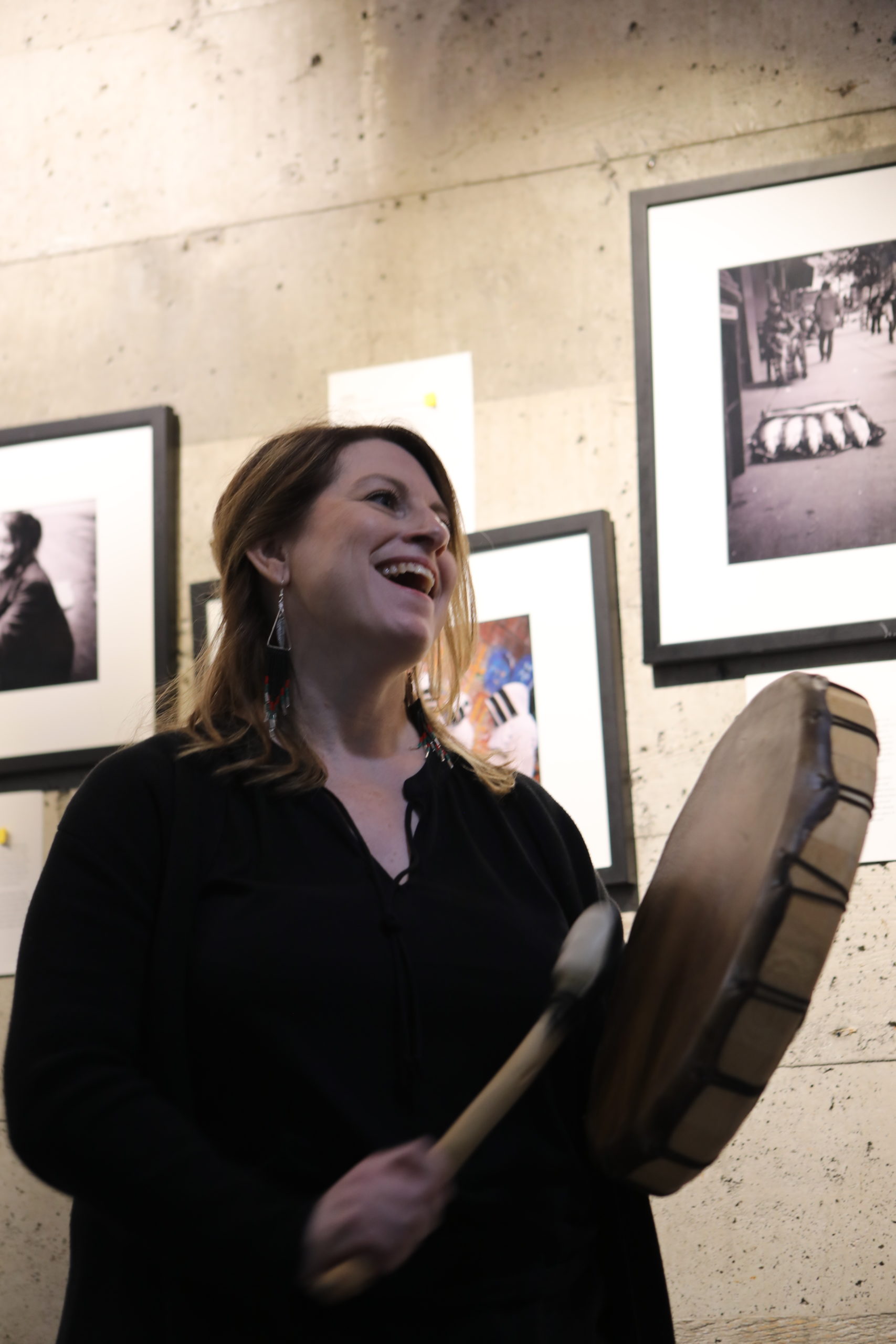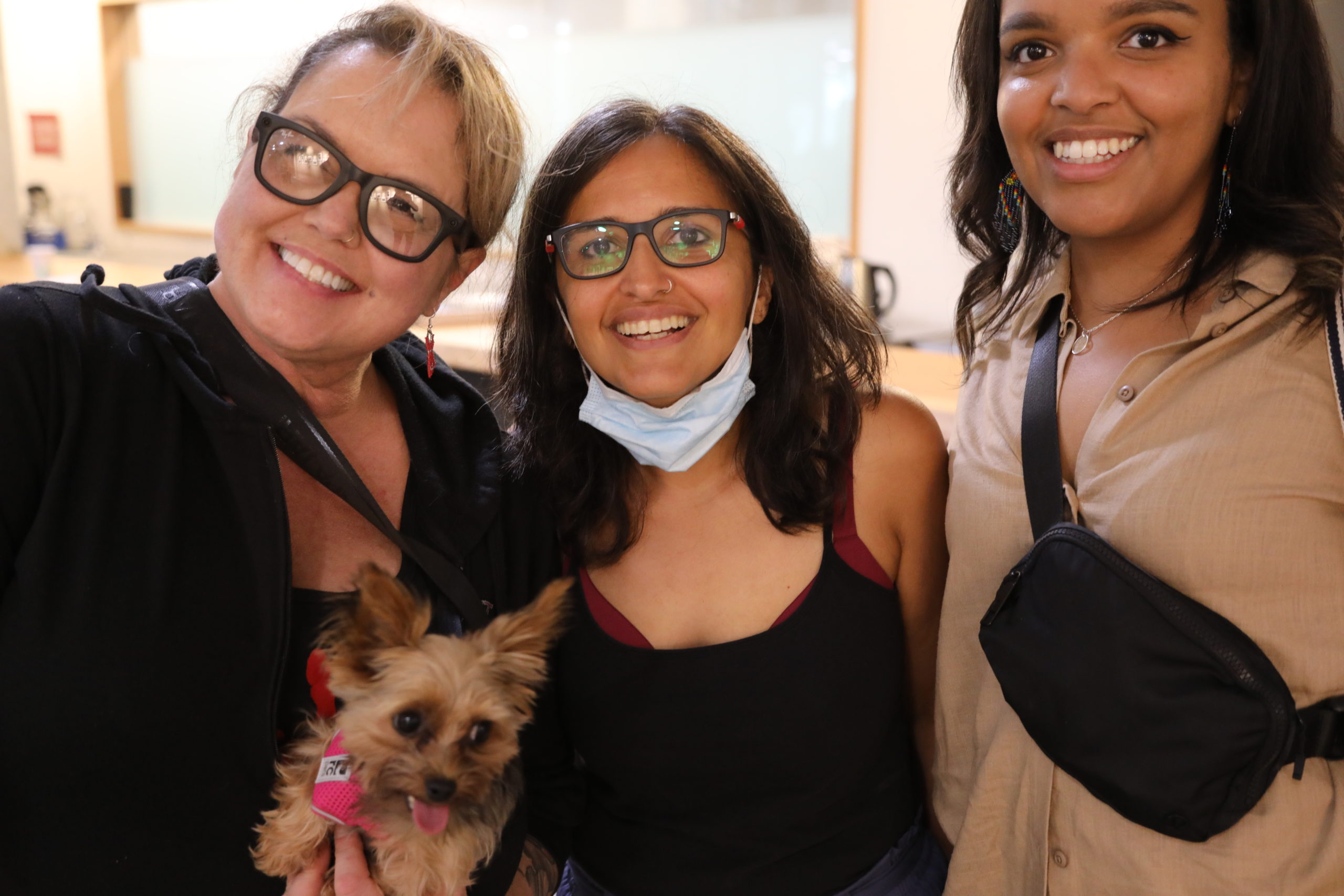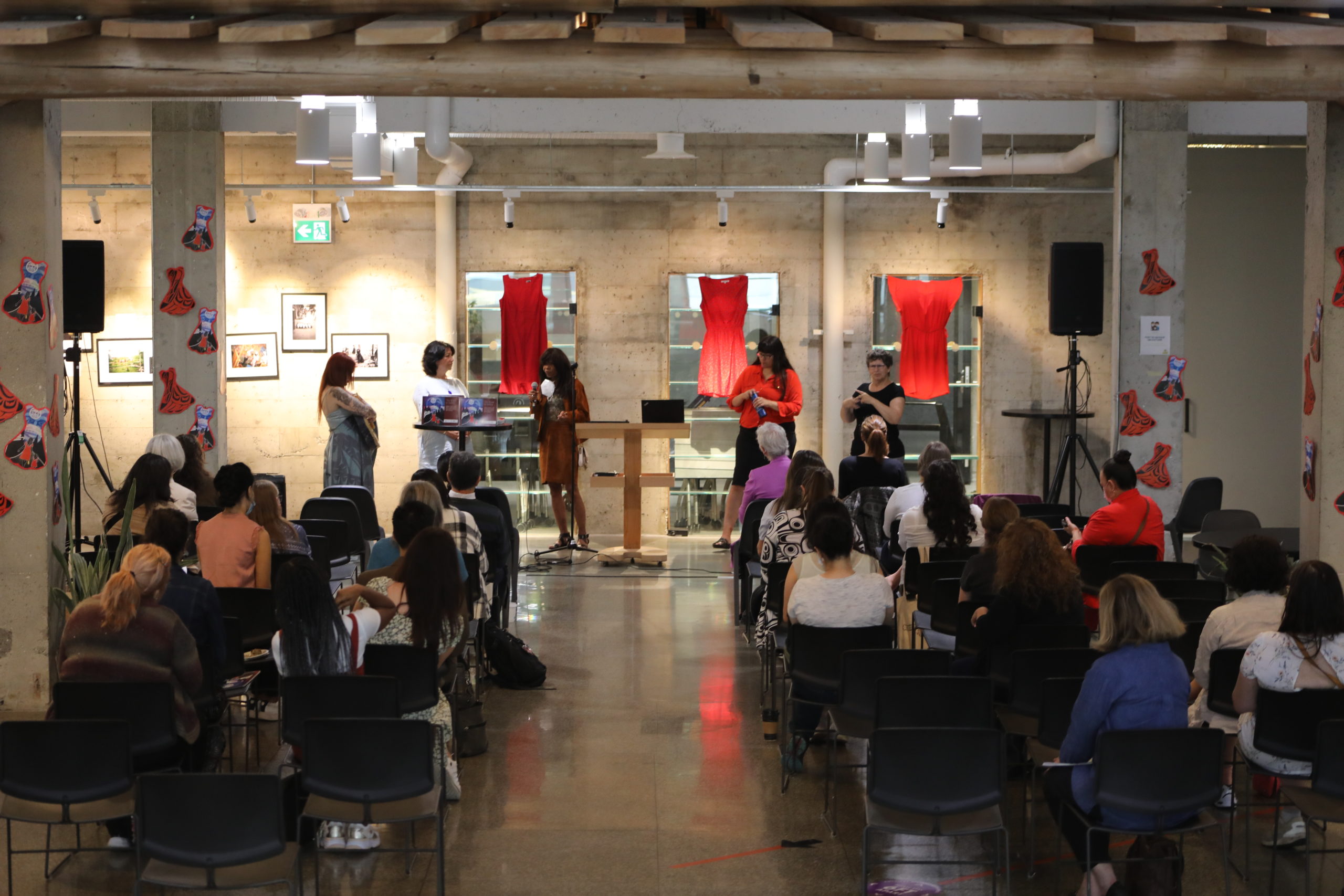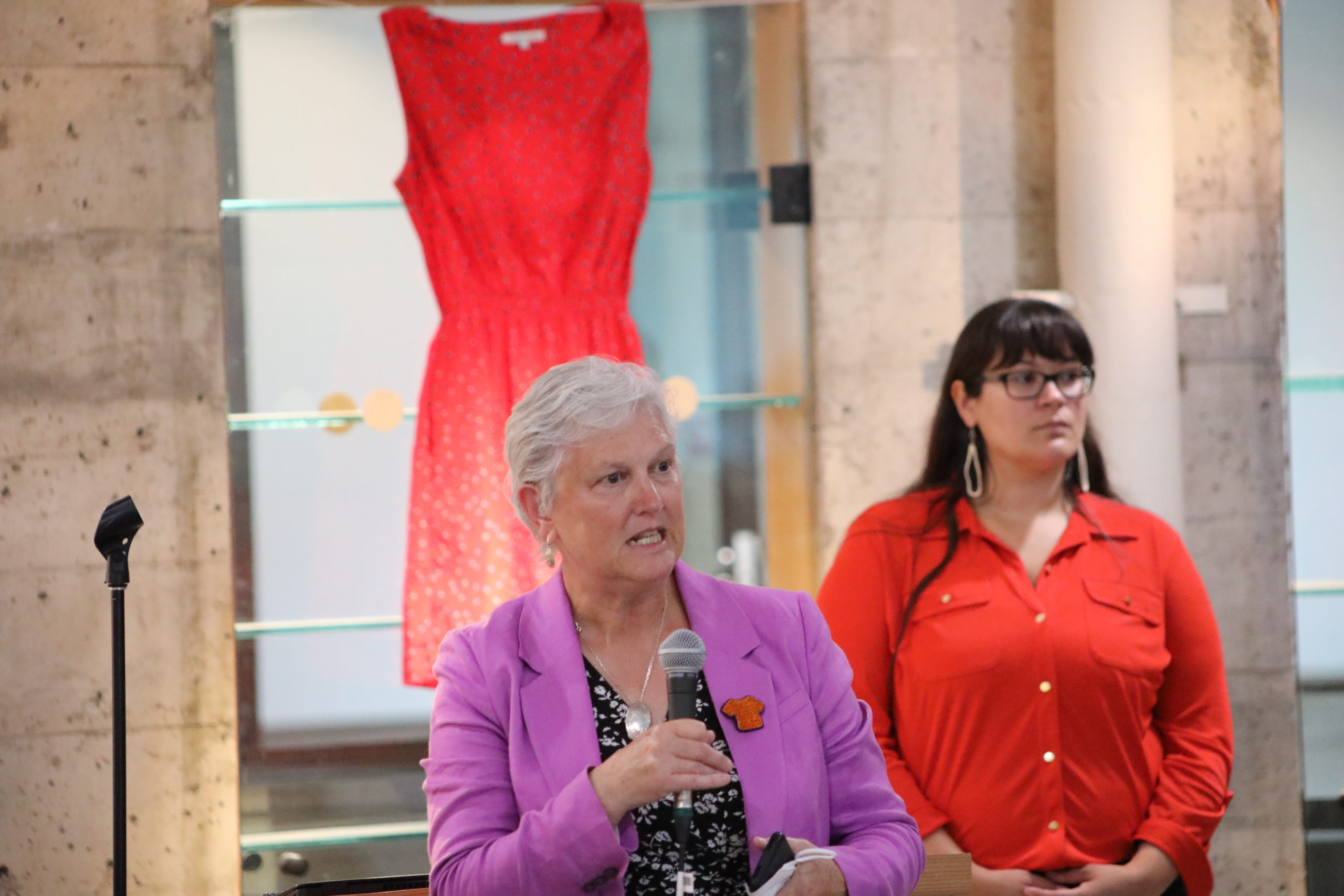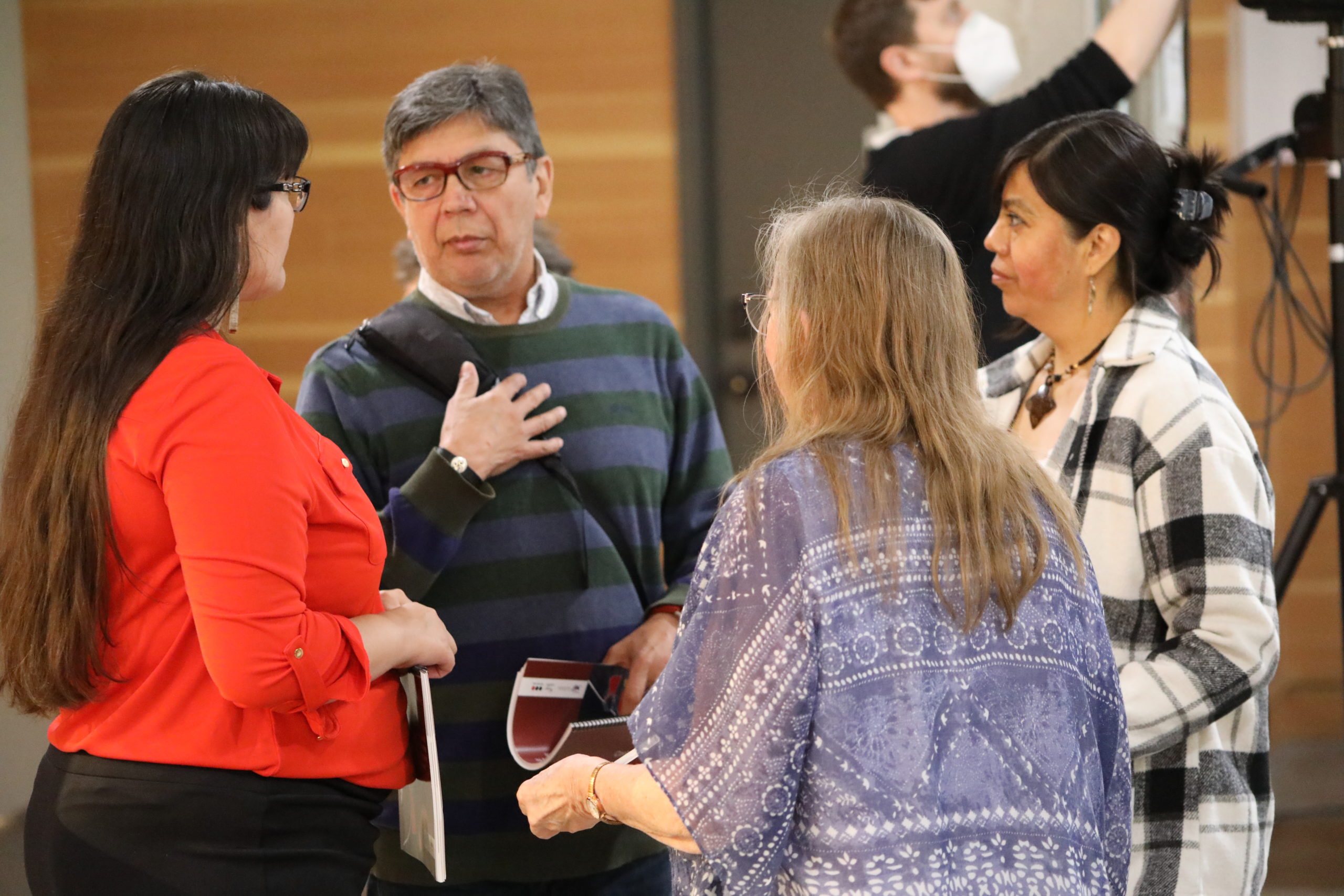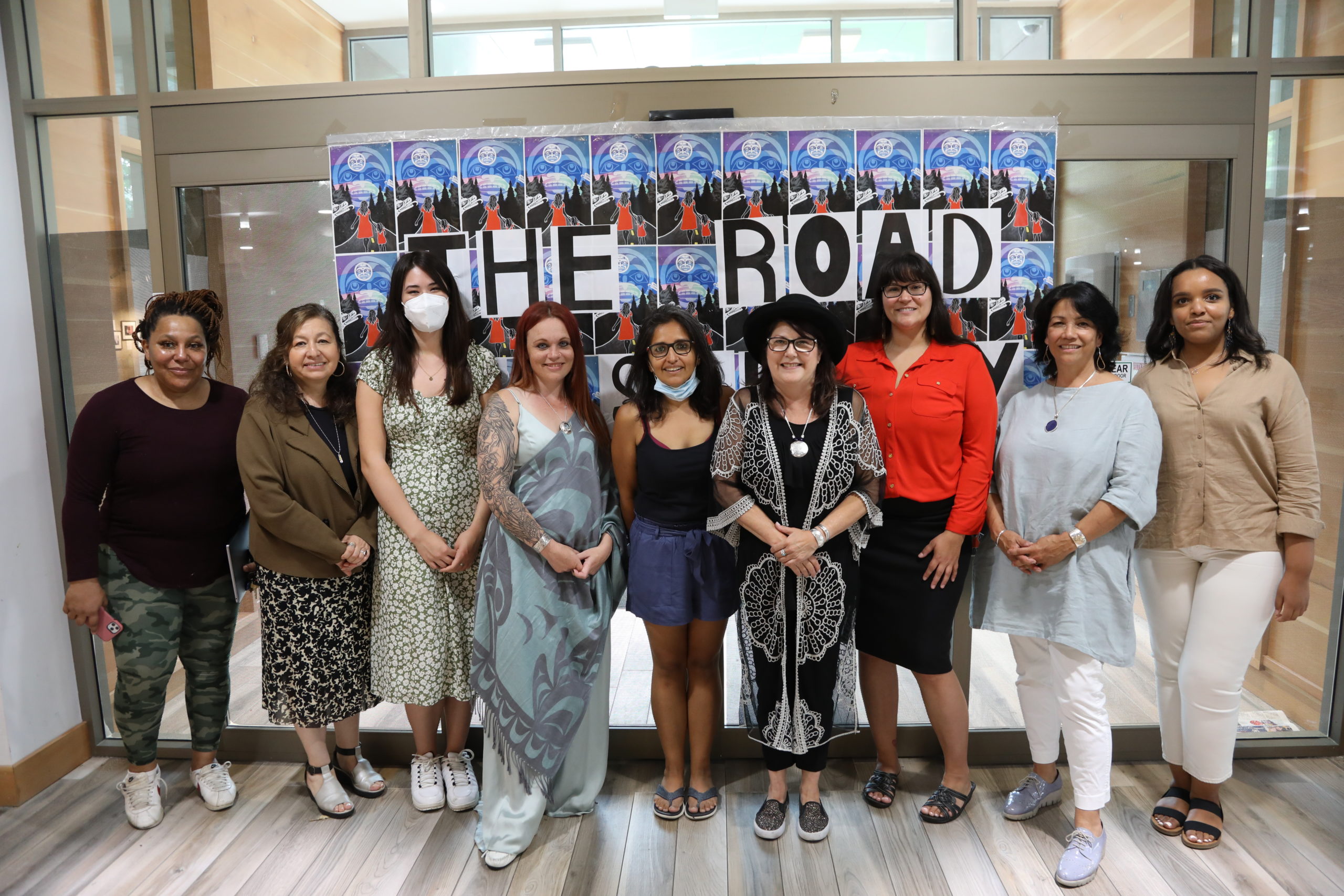BWSS shared the release of “The Road to Safety: Indigenous Survivors in BC Speak Out against Intimate Partner Violence during the COVID-19 Pandemic”, a community-based research project in collaboration with the BC Association of Aboriginal Friendship Centres (BCAAFC) and the University of Victoria on July 22, 2022.
The research, guided by the central methodology of “by and for Indigenous women,” centres the voices of Indigenous survivors of intimate partner violence during the pandemic. We acknowledge the challenging nature of sharing personal stories and honour the strength and courage of those Indigenous survivors who shared their experiences of intimate partner violence and gender-based violence with us. Many Indigenous survivors offered their stories and recommendations to prevent others from experiencing intimate partner violence and to share their vision of a road to safety.
Our research sought to understand the impact that the COVID-19 pandemic has had on the intimate partner violence (IPV) experiences of Indigenous women and gender-diverse people in BC. Our methodology consisted of an online survey and 28 in-depth interviews with Indigenous survivors of intimate partner violence and mostly non-Indigenous anti-violence support workers.
We found that the pandemic increased IPV in terms of severity and frequency: 85% of survey respondents reported an onset of IPV during the pandemic, while 77% of survey respondents reported an increase in IPV during the pandemic. Our research also found that there was an escalation from mental to physical forms of abuse. We found that 67 percent of those surveyed said they faced challenges in accessing services during the pandemic, and about 30 percent indicated that essential support services weren’t available during that time. Another key finding was that 47 percent of survey respondents did not have access to Indigenous-run transition home or safe house with culturally safe and relevant supports and services. For many Indigenous survivors living away from urban centres, access to support services was even more challenging. As one Indigenous survivor we interviewed told us, “We live in the North right, it’s already pretty isolated up here as is. When you feel alone, you feel alone. It’s hard to remember that you’re not alone, especially when you’re going through something like intimate partner violence.”
The Indigenous women and gender-diverse survivors told us that persistent barriers arose for them when seeking protection from IPV during the pandemic. Reduced services and service closures, lack of affordable and adequate housing, growing waitlists to access services, inadequate access to transport and childcare, quarantine and isolation, racism and discrimination, and the involvement of MCFD and law enforcement agencies prevented many Indigenous survivors from accessing anti-violence support services and safety. We heard from mostly non-Indigenous support workers that violence experienced by Indigenous survivors fluctuated depending on the stage of lockdown or severity of public health restrictions. Non-Indigenous support workers also reflected on how their organizations should provide more culturally safe and culturally appropriate services to Indigenous women and gender-diverse survivors. Many of these same support workers also reflected on their own inadequacies when it comes to providing trauma-informed care and support to Indigenous clients, as well as a lack of meaningful and ongoing decolonial education and professional training in the anti-violence organizations they worked for.
Now that COVID-19 pandemic restrictions and public health measures are lifting, how is this research still relevant?
When we started our research, the world was grappling with how to adapt to the COVID-19 pandemic. Thankfully, vaccinations have been made available to people in Canada and we now have medications to combat more severe cases of COVID-19. As public health restrictions wane, one might ask: how is research looking at the impacts of COVID-19 still relevant?
First, we recognize that the COVID-19 pandemic isn’t over yet. COVID-19 is still a threat, especially to people who are immuno-compromised and/or medically high-risk. Variants of the virus can be expected in the years to come, leading to new waves of infections that may be followed by public health measures implemented to curb them. Although we don’t anticipate that the provincial and federal governments will implement public health measures to the same extent as earlier in the pandemic, it is important to understand how public health policy disadvantages certain populations more than others so that public health measures can be better applied in the future. This will better ensure that populations under threat are protected. Importantly, Indigenous IPV survivors whom we surveyed and interviewed identified numerous pre-existing and ongoing barriers when attempting to access supports and services in BC. These systemic, social, and structural, barriers, such as colonial gendered violence, racism and discrimination, unequal and inadequate access to public services and culturally safe supports, lack of housing and transportation, harmful interactions with police and child services, and more, all form an interrelated system of oppression that heighten the experience of IPV for Indigenous survivors. These barriers existed before the COVID-19 pandemic hit and unfortunately, remain relevant in the foreseeable future.
What are the report recommendations?
Participants offered recommendations along six different themes including:
- Early intervention
- Overhaul of anti-violence service provision
- Emergency transportation
- Housing and childcare
- Overhaul of police and justice system responses to IPV
- Engage and support men and boys in ending IPV and gender-based violence
We heard on numerous occasions that there is a significant and immediate need for comprehensive decolonial training in cultural safety for the staff of child welfare agencies such as the Ministry of Children and Family Development (MCFD), as well as police, lawyers, and medical professionals.
One of the most glaring findings that came out of the report was the impact that MCFD has on the ability of Indigenous survivors to access supports and safety. Our work identifies that this is not simply a fear but a real risk, and that the child welfare system has deep roots in colonialism and follows decades of harmful federal and provincial policies of assimilation. The Road to Safety identifies that there is much work to be done within child welfare agencies to shed their roles as agents of colonialism and to genuinely protect and support Indigenous families. Recommendations offered in this regard include training in colonization and trauma-informed service provision, the hiring and retention of Indigenous support workers, and the creation and implementation of a strategy with adequate policy, standards, resources, and training to prevent the automatic involvement of MCFD for women who report abusers to police or who access safe homes and transition homes. When Indigenous mothers actively pursue safety and protection from IPV, this should be seen in a positive, rather than a negative light, in terms of the children’s well-being.
How should people committed to anti-violence work apply the findings of this report?
We hope that the information and recommendations contained in this report are actively applied by anti-violence and women’s service delivery organizations, policy makers, funding organizations, provincial and federal governments, child welfare agencies, and police. We recognize that it can be difficult for research reports to be translated into action, and we encourage readers to meaningfully engage with and implement recommendations contained in The Road to Safety. We hope this work informs change within anti-violence organizations and inspires additional research into Indigenous experiences of IPV and accessing support services in BC.
We encourage individuals and organizations to approach their response to the findings of this report with the same courage and commitment embodied by the survivors who shared their stories. While we recognize that it might be difficult for service organizations to hear how they need to improve, we encourage organizations to create systems and spaces within their structures for feedback from Indigenous survivors, with the intent to improve service delivery models and practices. Mainstream anti-violence organizations should recognize their short-comings and lack of understanding of culturally safe, trauma-based anti-violence service delivery and look to Indigenous women and gender diverse people for guidance on decision making and service delivery.
We have been very heartened and encouraged by the response to our report so far. On July 22, 2022, BWSS and BCAAFC hosted a community-launch event for report in Vancouver’s Downtown Eastside, on the traditional territories of the xʷməθkwəy̓əm (Musqueam), Skwxwú7mesh (Squamish), and səlil̓wətaʔɬ/Selilwitulh (Tsleil-Waututh). Like the report, the launch event centred, celebrated, and honoured the voices of Indigenous women and gender-diverse people. In total, over 80 people attended the community launch event, which brought together people with lived experiences of intimate partner violence, members of Vancouver’s Indigenous community, and leaders of service organizations to bear witness to the powerful report findings and recommendations.
We encourage everyone involved in service delivery, specifically support/front line workers, MCFD workers, and leadership within service delivery organizations, to read The Road to Safety. We kindly ask that readers take time to sit with the words, perspectives, and thoughts of Indigenous survivors of intimate partner violence in BC. Indigenous women and gender-diverse survivors offered their stories to prevent others from experiencing intimate partner violence, and we hope we have amplified their powerful voices in such a way as to move towards making this vision a reality. We ask that you share this report within your networks to help us do so.
For more information on the work BWSS is doing to support Indigenous women and gender-diverse people experiencing intimate partner violence and gender-based violence, please visit https://www.bwss.org/support/programs/indigenous-womens-programs/.


